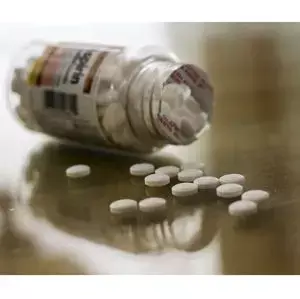- Home
- Medical news & Guidelines
- Anesthesiology
- Cardiology and CTVS
- Critical Care
- Dentistry
- Dermatology
- Diabetes and Endocrinology
- ENT
- Gastroenterology
- Medicine
- Nephrology
- Neurology
- Obstretics-Gynaecology
- Oncology
- Ophthalmology
- Orthopaedics
- Pediatrics-Neonatology
- Psychiatry
- Pulmonology
- Radiology
- Surgery
- Urology
- Laboratory Medicine
- Diet
- Nursing
- Paramedical
- Physiotherapy
- Health news
- Fact Check
- Bone Health Fact Check
- Brain Health Fact Check
- Cancer Related Fact Check
- Child Care Fact Check
- Dental and oral health fact check
- Diabetes and metabolic health fact check
- Diet and Nutrition Fact Check
- Eye and ENT Care Fact Check
- Fitness fact check
- Gut health fact check
- Heart health fact check
- Kidney health fact check
- Medical education fact check
- Men's health fact check
- Respiratory fact check
- Skin and hair care fact check
- Vaccine and Immunization fact check
- Women's health fact check
- AYUSH
- State News
- Andaman and Nicobar Islands
- Andhra Pradesh
- Arunachal Pradesh
- Assam
- Bihar
- Chandigarh
- Chattisgarh
- Dadra and Nagar Haveli
- Daman and Diu
- Delhi
- Goa
- Gujarat
- Haryana
- Himachal Pradesh
- Jammu & Kashmir
- Jharkhand
- Karnataka
- Kerala
- Ladakh
- Lakshadweep
- Madhya Pradesh
- Maharashtra
- Manipur
- Meghalaya
- Mizoram
- Nagaland
- Odisha
- Puducherry
- Punjab
- Rajasthan
- Sikkim
- Tamil Nadu
- Telangana
- Tripura
- Uttar Pradesh
- Uttrakhand
- West Bengal
- Medical Education
- Industry
Aspirin Plus Clopidogrel Better Than Just Aspirin In Managment of Acute Stroke: RCT

In a recent RCT published in JAMA Neurology, researchers form China have discovered that a combination of clopidogrel and aspirin can significantly reduce early neurologic deterioration in patients with acute mild to moderate ischemic stroke who are not eligible for reperfusion therapies.
Ischemic stroke, caused by a blockage in the blood vessels supplying the brain, is a leading cause of disability and death worldwide. While reperfusion therapies such as thrombolysis and endovascular treatment have proven effective in treating acute ischemic stroke, many patients are not eligible due to a limited therapeutic window and access to specialized care. This leaves a significant proportion of patients with mild to moderate ischemic stroke without optimal treatment options.
The ATAMIS trial, a multicenter, open-label, blinded end point, randomized clinical trial conducted across 66 sites in China, sought to address this unmet need. The study enrolled 3000 patients with acute ischemic stroke (NIHSS score 4-10) who were not eligible for reperfusion therapies and presented within 48 hours of symptom onset. Patients were randomly assigned to receive either clopidogrel plus aspirin or aspirin alone.
The primary end point of the study was the occurrence of early neurologic deterioration at 7 days, defined as an increase in NIHSS score of 2 or more points compared with baseline. Secondary outcomes included excellent functional outcome (mRS 0-1) at 90 days, shift in mRS distribution at 90 days, change in NIHSS score at 14 days, new ischemic or hemorrhagic stroke within 90 days, and other vascular events or death within 90 days.
The results of the study were promising. In the modified intention-to-treat population (n=2915), early neurologic deterioration at 7 days occurred in 4.8% of patients in the clopidogrel plus aspirin group compared with 6.7% in the aspirin alone group. This finding remained significant after adjustment for prespecified prognostic variables, indicating that the combination of clopidogrel and aspirin is superior to aspirin alone in reducing early neurologic deterioration.
Interestingly, subgroup analysis revealed that the benefit of dual antiplatelet therapy was more pronounced in patients treated within 24 hours of symptom onset. This finding underscores the importance of early intervention in the management of acute ischemic stroke.
While the study did not find significant differences in the secondary outcomes between the two groups, including 90-day functional outcomes, the reduction in early neurologic deterioration is a crucial step forward. Early neurologic deterioration is associated with poor long-term outcomes, and preventing its occurrence can have a substantial impact on a patient's quality of life.
Importantly, the safety profile of the dual antiplatelet therapy was comparable to that of aspirin alone. Adverse events, including bleeding complications, were similar between the two groups, indicating that the short-term use of clopidogrel plus aspirin is safe in this patient population.
The findings of the ATAMIS trial have significant implications for the management of acute mild to moderate ischemic stroke. The study provides evidence that dual antiplatelet therapy with clopidogrel plus aspirin is a viable treatment option for patients who are not candidates for reperfusion therapies and present within 48 hours of symptom onset. The short-term use of this combination therapy appears to be safe and effective in reducing early neurologic deterioration, particularly when initiated early.
Reference:
Chen H, Cui Y, Wang X, et al. Clopidogrel Plus Aspirin vs Aspirin Alone in Patients With Acute Mild to Moderate Stroke: The ATAMIS Randomized Clinical Trial. JAMA Neurol. Published online March 11, 2024.
doi:10.1001/jamaneurol.2024.0146
MBBS, DrNB Neurosurgery
Krishna Shah, MBBS, DrNB Neurosurgery. She did her MBBS from GMC, Jamnagar, and there after did direct 6 Year DrNB Neurosurgery from Sir Ganga Ram Hospital, Delhi. Her interests lie in Brain and Spine surgery, Neurological disorders, minimally invasive surgeries, Endoscopic brain and spine procedures, as well as research.
Dr Kamal Kant Kohli-MBBS, DTCD- a chest specialist with more than 30 years of practice and a flair for writing clinical articles, Dr Kamal Kant Kohli joined Medical Dialogues as a Chief Editor of Medical News. Besides writing articles, as an editor, he proofreads and verifies all the medical content published on Medical Dialogues including those coming from journals, studies,medical conferences,guidelines etc. Email: drkohli@medicaldialogues.in. Contact no. 011-43720751


